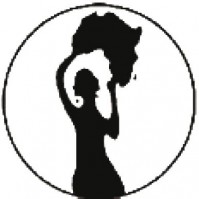Association of African Women for Research and Development (AAWORD )

- 0.00
- Address : Sicap Sacré Coeur I, villa 8798,
- Sector:
- Accomplishments:
-
Executive Secretary: Odile Ndoumbe FAYE
- The Association would be independent from African and foreign governments;
- The Association will cooperate with individuals and organisations which adhere to and support its goals; and
- The association will be committed to the creation of modern, developed, democratic and egalitarian communities in Africa;
Presentation
AAWORD/AFARD is a continental, non- governmental and non-profit making organization based in Dakar (Senegal). AAWORD/AFARD was established in December 1977 in Dakar by African women researchers and activists driven by their passion to decolonize African research from the Western subjective analysis, which was not reflecting women’s status and commitment in the development process of the continent.
The Dakar meeting in 1977 which led to the establishment of AAWORD/AFARD followed the consultative meeting in Lusaka (Zambia) held in December 1976 and whose objective was to enable African women to define critical feminist research programs, advocacy and training with the view to denouncing the policies and programs which hinder the development of African countries and thereby contributing to the achievement of gender equality through “the establishment of a strong women’s movement, combining human rights with the theory and practice of development, while investing in research, training and advocacy for the sustainable development of the African continent and the strengthening of its democracy.”
AAWORD/AFARD has now become a Pan African non governmental and non-profit organization headquartered in Dakar, Senegal. It has a membership of more than 1000 members scattered in 22 African countries, the Diapora and the USA.Missions
Since its creation, the members of AAWORD decided that the following principles will guide the Association’s approaches:
The “colonisation” of African research and use of women as research objects resulted, among others, in overlooking the historical and sociocultural realities in data analysis and interpretation. This led to the proliferation of subjective writings on the social conditions and participation of women in the development process of the African continent.
Faced with this situation and in light of the still important weight of external perceptions on the solutions to these issues at the time, AAWORD set itself the mission to build a strong African women’s movement, combining human rights and development theory and practice, by throwing itself into research and providing its contribution to sustainable development in the continent and the anchoring of democracy. The question is still today for AAWORD to contribute to building a democratic, fair and egalitarian African society. 



 Login with Facebook
Login with Facebook Sign in with Google
Sign in with Google